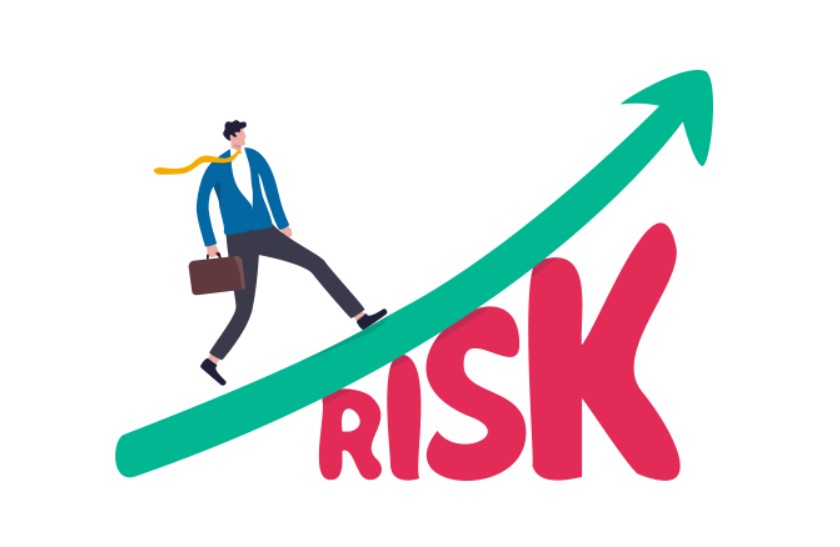5 Business Lessons Entrepreneurs Can Learn from Casino Strategy
Every casino sits at the heart of careful risk, bold moves, and sharp focus. Few expect to find business advice beneath the bright lights, but casinos run on rules that many entrepreneurs can put to work. Lessons from the tables cut past showmanship and luck. Casinos thrive by reading data, pushing efficiency, and knowing their odds at every turn, and they are doing so very successfully. Look to see the full list of some of the best current online casinos in the UK — many of them display approaches that entrepreneurs can learn from.
For founders and business owners, this world offers more than entertainment — it’s a case study in dealing with uncertainty and discipline. Running a business means making decisions with incomplete information and limited resources. Casinos do this every day, shaping experience and profit while adapting fast.
Drawing on examples from real casino strategies, this piece uncovers habits and approaches that work far beyond the gaming floor. The principles found in tightly managed casino operations help build resilience, sharpen judgment, and drive sustainable progress in unpredictable markets. The insights shared here promise practical ways to give any enterprise a stronger edge.
1. Mastering Risk Without Gambling the Future
Understanding risk sets casinos apart from casual tables and unplanned bets. The same logic applies to business. Success is not just luck, but a study in discipline and choice. Entrepreneurs, much like seasoned players, are not chasing the next thrill but measuring the difference between smart risks and reckless moves. The way casinos weigh odds mirrors the decisions leaders must make with capital, time, and reputation.
Understanding Risk Appetite

People on the casino floor do not treat risk all the same way. Some stay at low-stakes tables, others play for larger wins, but all must know how much they are prepared to lose. This clarity sets boundaries and keeps outcomes under control, no matter the pressure or the lure of a jackpot. Business founders face similar calls. Taking a risk is not the same as guessing. They measure what can go wrong as carefully as what rewards might come. A clear risk appetite keeps leaders from making wild, panicked decisions that can destroy value.
A founder with strong risk discipline looks beyond hope. They ask: how much of our cash can we put behind this? Is this the right time to push further, or should we wait? These questions help outline the real cost if things do not work out, and that knowledge shapes better choices. A clear sense of risk appetite gives confidence. Investors and staff trust leaders who set limits and stick to them, even if the pressure rises or trends shift.
In casinos, players who know their limit usually last longer at the table. They walk away with less regret, their judgment intact. Business founders who respect their risk limits weather storms and recover faster. This approach saves resources and, often, reputations.
The Power of Calculated Moves
Casinos do not leave outcomes to blind luck. Every action, from setting the odds to choosing when to open a new high-stakes table, starts with hard numbers and models. They study player habits and test ideas on a small scale before rolling out big changes. It is a careful process: acts of chance are managed within systems that lower uncertainty. The result is steady returns and fewer surprises.
Entrepreneurs who succeed operate in much the same way. Every launch or change is checked against past results. Markets are tested. Leaders gather the facts, ask for feedback, and make sure plans fit what the numbers say is possible. Gut instinct helps, but it is never the whole story. Data helps leaders see patterns, avoid known traps, and build step by step. Smart decisions do not come from luck but from careful review and a willingness to stop, or double down, when the evidence calls for it.
Calculated risk is not passive. It is not about sitting back or delaying moves. It means acting with clear intent, backed by knowledge and readiness to adjust when results differ from plans. Both the casino and the start-up grow not by avoiding all risk, but by knowing which risks are worth taking, and when. This method protects long-term potential and allows for bold moves when the odds are right.
2. Emotional Intelligence as a Hidden Asset
Emotional intelligence often sits below the surface, quietly shaping how leaders think and act. Many focus on strategy and numbers, but the edge for both casino experts and business owners often comes from keen self-awareness and social skills. Recent research underlines this: those with higher emotional intelligence see better decision-making, tighter teams, and stronger business results, especially during pressure and setbacks.
Staying Cool Under Pressure
On a casino floor, stress comes fast. Decisions are made with eyes watching, money moving, and time running out. Flustered players show their hands and lose their grip. Skilled players train for calm. They read their own feelings before acting. By holding steady, even when faced with sudden loss or unexpected gain, they make better choices when every second counts.
Entrepreneurs walk a similar path. Funding calls and product launches rarely go as planned. Others watch their moves, hoping for weakness or a mistake. Without emotional control, panic sets I,n and easy options tempt leaders off track. Those who have learnt to pause, slow their breathing, and reflect before acting can keep teams calm and choices clear. Staying cool protects from blunders made in anger or fear. Teams need steady examples: They watch how their leaders act when risk surges and plans buckle.
In both business and gaming, pressure is part of the deal. Emotional control is not about hiding fear or pretending each moment is easy. It’s about staying focused and present, allowing nerves to sharpen decisions, not cloud them. Leaders who keep their cool create space for better ideas, even as the clock runs down.
Resilience After Loss

Loss is certain. Everyone faces setbacks — bad hands, sudden costs, missed opportunities. The difference is what happens next. Top players take a breath, assess the damage, and keep their focus sharp. They do not chase losses or lash out after a round of bad luck. Instead, they adjust and return with a clear head.
Entrepreneurs face rejection, failed deals, and unexpected turns. Some allow these moments to define them. Others build the skill to accept failure as part of the process. They draw lessons, cut their losses, and continue forward. Recovery starts with accepting reality without denial or blame. It moves to an honest review: What went wrong? What was outside of control? How can we act smarter next time?
This approach builds trust. Teams watch how their leaders respond to disappointment. Calm recovery signals strength and creates room for improvement. Consistent focus after a loss keeps long-term goals in view, rather than letting one setback end progress. Like a skilled card player who stays at the table after a loss, entrepreneurs who show resilience keep building, one decision at a time. Over time, it’s this steady ability to reset and move forward that sets high performers apart.
3. Customer Experience: Creating Lasting Loyalty
Every successful casino knows that loyalty isn’t built on single wins — it’s built on how people feel every time they return. The same rule applies across industries. Whether online or in person, customer experience decides who comes back, who spreads the word, and who moves on. Brands that understand this don’t just offer a service: They create an atmosphere of recognition, comfort, and trust. The following strategies, drawn from the world of casino operations, show how loyalty grows when the whole journey is designed to feel rewarding.
Crafting Memorable Experiences
Atmosphere is strategy. On the casino floor, it’s not just games and jackpots — it’s lighting, sound, tone of voice, the way a staff member smiles or says a guest’s name. It’s how people feel when they step in and how they remember it afterwards. These small touches form a much larger impression. A chair that’s just right. Music that doesn’t shout. A server who remembers your drink. Guests rarely name the details, but they remember the feeling.
In business, it’s no different. First impressions carry weight: A website that loads quickly and guides the user with clarity. A follow-up email that answers unasked questions. A phone call where someone listens, not reads from a script. These interactions stack up. They become part of the brand. Not just what people buy, but how they were treated when they did.
Personalisation and Rewards
Casinos don’t guess who their customers are. They track behaviour, learn preferences, and tailor offers that fit. A returning guest might receive bonus chips, free hotel stays, or early access to an event. These are not random gifts; they are recognition. The guest feels remembered. Seen.
Modern business technology makes the same approach available to nearly everyone. Retailers can offer discounts based on purchase history. Streaming services recommend content based on mood and time of day. Even a corner café might remember a name or favourite table. These are not tricks; they’re tools of relevance.
Loyalty schemes thrive when rewards feel timely and real. A well-placed thank-you note. A discount sent just before a customer repurchases. Recognition doesn’t need to be loud, it needs to be accurate. When a customer feels the reward fits who they are and what they’ve done, it deepens the bond. It invites them back.
4. Adaptability in a Shifting Environment
In a casino, the environment shifts constantly: Player moods, market trends, and regulations. The top operators don’t just react. They scan ahead. They build systems that can flex before pressure demands it. This is not just survival; it’s foresight.
The leap to mobile casinos was one of these shifts. Operators who acted early now dominate the space. They didn’t wait for everyone else to prove it — they watched the signals, saw where users were spending their time, and moved quickly. The result? A head start in a market worth billions.
In any business, acting early wins more than waiting for proof. Pivoting to meet a changing audience, adjusting products to match current needs, or reworking operations to meet a new standard — these are not gambles. They’re deliberate shifts made with eyes wide open.
Strategic Change in Uncertain Times

Crisis doesn’t just test systems, it reveals how adaptable they really are. During the pandemic, casinos that survived were those that pivoted fast. They didn’t just shut down and wait. Instead, they moved online, expanded digital experiences, and introduced new forms of contactless engagement. Even after reopening, those changes remained because they worked.
Strategic change doesn’t always need to wait for a crisis. Casinos have rebranded entire business models, from gambling halls to full-scale resorts. Events, shows, dining, and hotels are all part of a wider vision to stay relevant in a shifting market. This isn’t just resilience. It’s reinvention.
Any business can learn from this. Listen closely. Study your data. When something breaks the pattern, ask why. Respond early, not late. A strong pivot isn’t luck, it’s the product of watching, thinking, and acting without delay.
5. Building Trust With Transparency and Security
Trust is the quiet currency behind every long-term business relationship. Casinos have spent decades refining how they earn and protect it. Their operations hinge on visible fairness, clear communication, and the knowledge that every outcome, win or lose, is handled with integrity. Businesses today face the same challenge: to build loyalty not just with great products, but through transparent, secure practices that earn belief.
Protecting Customer Trust
Security isn’t just about encryption, it’s about intention. It’s the promise that every customer’s data, money, and experience will be treated with care. Casinos post rules, show odds, and make sure payouts are seen and verified. This openness builds confidence. Businesses that follow suit — by clearly stating how data is used, by publishing fair terms, and by responding promptly when concerns arise — invite trust instead of assuming it.
Clarity helps close the gap between doubt and loyalty. Every interaction, from terms of service to email opt-ins, should be plain, honest, and fast to access. When clients know where their information goes and how to get support, they feel in control. And when updates or problems happen, it’s the speed and honesty of the response that matters most.
Compliance shouldn’t be a minimum bar; it should be a starting point. Businesses that lead with transparent policies, upfront reporting, and voluntary audits don’t just satisfy regulation. They create peace of mind. This is especially true in 2025, where public demand for data visibility and responsive platforms has reshaped expectations. Privacy dashboards, user-controlled permissions, and real-time notices are now part of what trust looks like.
Mistakes will happen. What matters is whether the business hides them or owns them. A fast, open correction does more for credibility than a perfect record ever could. In this way, trust becomes resilient. It absorbs shocks, grows stronger with each honest response, and forms the backbone of loyalty that outlasts transactions.
People don’t expect perfection. But they do expect fairness. That’s what casinos have known for decades, and what any modern business must embrace to earn lasting confidence.







